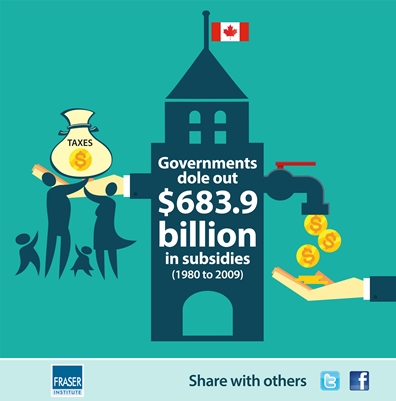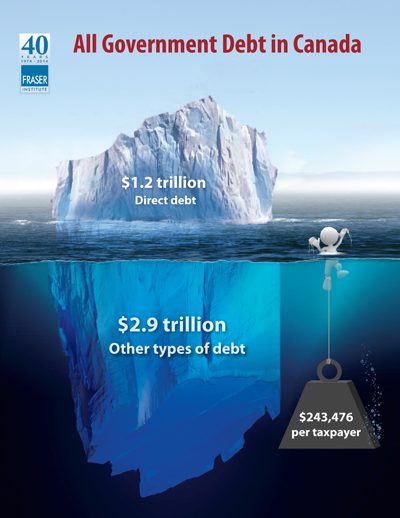Lost in the current flurry of Ontarios election campaign is the one key issue facing the province, and indeed all of Canada: Ontarios laggard economic performance is dragging down the national economy.
government spending
Ever wonder how Canada's net federal debt reached $671 billion by 2013? Or how net provincial debt among the provinces ended up at $509 billion that same year? Wonder no more. It's partially due to massive subsidies to corporations, government businesses and even consumers that over three decades amounted to $684 billion.
As Ontario continues to undermine its economic future with growing debt, the province does not receive near the critical scrutiny it should from the media and financial markets. In reading CIBC World Markets latest Economic Insight, its not hard to understand why.
The economic news coming out of Ontario in recent days has been far from positive. The province's economic and fiscal position is weak and new analysis released by the Ministry of Finance suggests its economy will remain sluggish for the foreseeable future.
If Canadians ever wonder why it is so difficult to reform government spending, there's a simple reason: government employee unions.
A good example (if one can call it that) is the issue of growing government sector pension costs and the outright resistance from the unions to address the problem.
Some specifics. In January, Newfoundland and Labrador's auditor general Terry Paddon noted how unfunded employee pension benefits make up more than 60 per cent of that province's net debt and amounted to a $5.6 billion liability.
Imagine receiving a credit card bill that totaled $243,476. This would no doubt be a shock for most Canadians. But if you add up all the liabilities of every Canadian government "federal, provincial, and local" that is in fact how much each taxpayer would owe of the $4.1 trillion total in direct debt and unfunded liabilities.
This admittedly is a very large number and much bigger than what is usually talked about by both politicians and pundits alike. So let's deconstruct it to gain a better understanding.
No normal person pays close attention to who is "in" or "out" as finance minister, and that's a good thing. It means the politician in question has avoided messing up the lives of ordinary Canadians. Still, their actions can and do matter, for better or worse.


